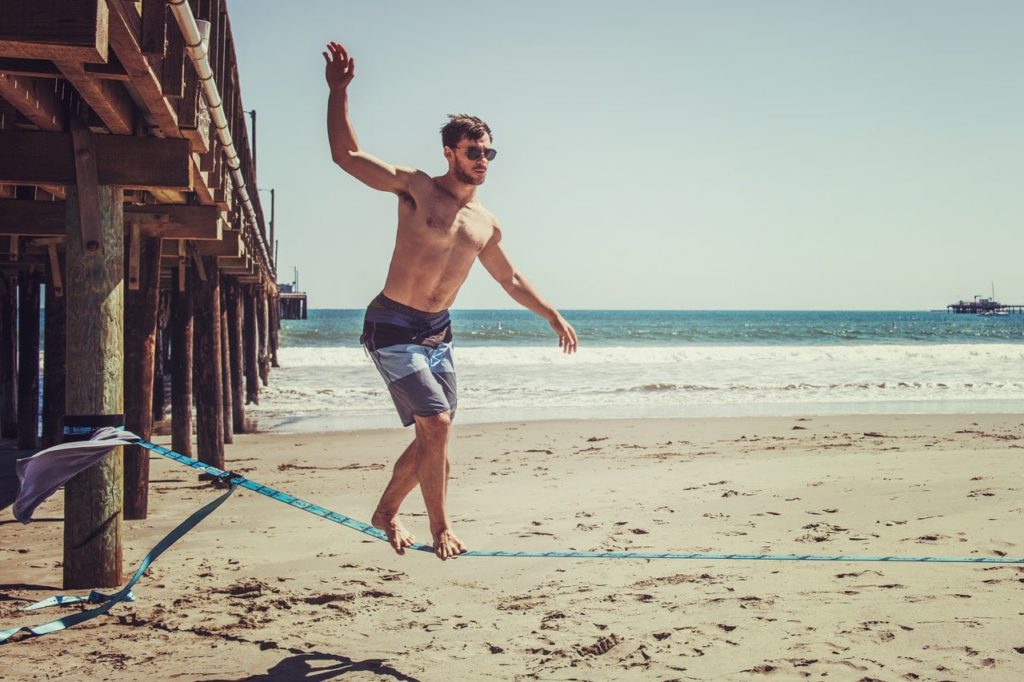
Creating Balance in Your Life
Many people in society today lead fast paced lifestyles and struggle with balance. While the recent coronavirus crisis may have slowed life down, many people in recovery may find themselves compensating in not-so-healthy ways. For example, you may find that when you’re working from home, you’re working more hours in the day than is healthy. Or maybe you’re becoming a bit obsessive about sticking to a workout routine. Both of these examples are things that can become unhealthy quickly if you’re not careful. It’s easy for a person to trade one addiction for another.
Obsessive Behaviors Are Warning Signs
You may not think that some of your behavior, even when excessive, is a problem. Maybe you’ve been taught to believe that there’s no such thing as “too much of a good thing”. (You probably told yourself that same line when you were using your drug of choice, too.)
For a person in recovery, there is ALWAYS the potential for there to be “too much of a good thing”. Obsessive and compulsive behaviors are a part of the addiction. The truth is that your brain is rigged for addiction, and it will latch on to almost ANY activity that feels good or distracts you from your feelings and reality.
A few obsessive behaviors that can cross the line to obsession are sex, playing video games, and using social media. Using these things to “feel better” can send you into an addictive spiral where you want to block out all of your real life and focus on doing just those things. Eventually, those behaviors can lead to a relapse, because when they stop working (giving you the desired feelings) your drug of choice will start calling for you.
Finding Balance Day-to-Day
People with addiction often have a craving for MORE of anything that feels good. But this isn’t how life actually works; life is full of ups and downs. Finding balance means that you don’t have to do anything obsessively, but you DO have to live life on life’s terms. Learning to experience both the good and the bad is a healthy part of recovery and learning balance.
Here are some suggestions for finding balance now that you’re sober:
- Set a schedule. Make time for work and play, but don’t neglect your recovery program. If you’re working from home right now, make sure to only work the hours you promise to your employer each day.
- Make “to do lists” for tasks that don’t need to be completed on a specific day. When you have free time, check your list.
- Commit to make 12-step meetings. Make sure you are going to as many meetings as your schedule allows. Choose a “home group” and make sure you always attend that group’s meetings.
- Take time for relaxation. Many people in recovery feel like they “missed out” and wanted time when they were in their active addiction. But trying to compensating for those days by working too hard can make you exhausted. Another reason why balance is so vital! Schedule in relaxation or leisure time.
- Take care of your body. Eat well-rounded meals around the same time everyday, and get exercise regularly.
- Pay attention to relapse warning signals! HALT is something to remember: are you letting yourself get hungry, angry, lonely or tired? If so, then your life is becoming out of balance. It’s time to refocus and take care of your basic needs.
- Don’t put anything or anyone before your recovery. If you relapse, all of the things you’re working on achieving or relationships you’re mending will be in immediate jeopardy.
- Be aware of your own behavior. Almost anything a person finds pleasurable can be abused and lead to addictive behavior, which can also set a path to relapse.
- Cope with stress in a healthy way. Yoga, meditation, and exercise are just a few examples of activities that can curb those feelings you get when you’re feeling overwhelmed.
Finding balance is a constant task for many people in recovery. No matter what, your recovery should come first, because without it, all the other things you’re trying to do will suffer. Staying sober is always an important part of balancing your life. You’re worth it, so keep working your program.
Getting Help for Addiction
Do you or a loved one have a drug or alcohol problem? Help is available, even during the pandemic. We offer Medication-Assisted Treatment, detox, inpatient and outpatient services. We can help you decide what options are right for you, and how we can help by calling us at 619-363-4767.
Categories
Recovery





